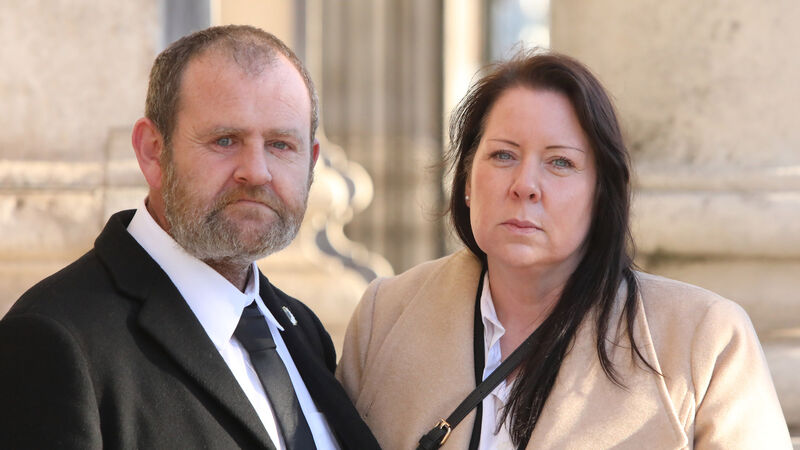Limerick woman 'would not have died' if given anti-coagulant in hospital, expert tells court

Eve Cleary's parents Barry Cleary and Melanie Sheehan Cleary outside the Four Courts. Picture: Collins Courts
If Eve Cleary, who died hours after being discharged from University Hospital Limerick, had been given an anti-coagulant it would have prevented her from developing the blood clot in her lung, which led to her cardiac arrest and death, the High Court has heard.
A medical expert told the second day of the civil action over the death of the 21-year-old Limerick woman that even if Ms Cleary had been given the anti-coagulant Heparin at the time of her hospital discharge or within an hour of it, it would have prevented the pulmonary embolism which is when a blood clot gets stuck in an artery in the lung.











